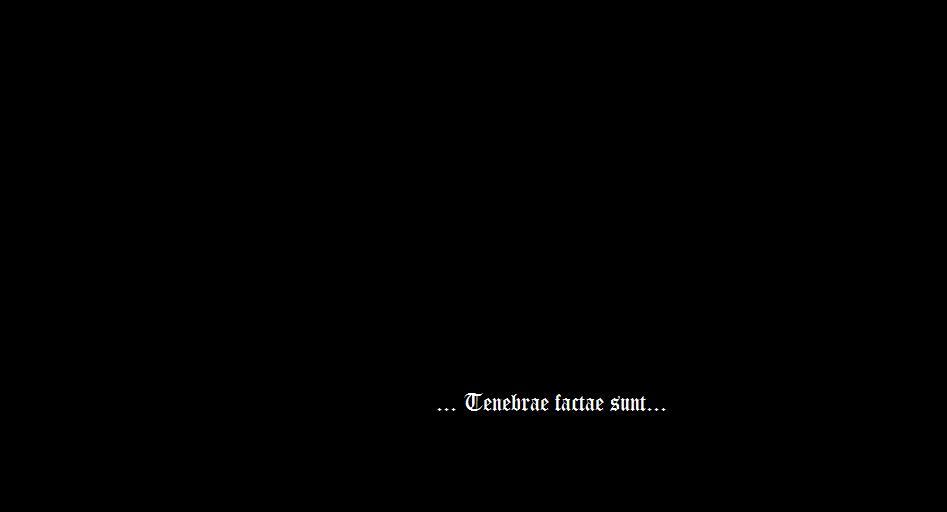Exodus 17:1-7
 You cannot have grown up in the 1980s without having had your childhood shaped, at least in part, by Michael J. Fox’s hit 1985 film Back to the Future. The film is the story of teenager Marty McFly, who is sent back in time to 1955. While there he figures out pretty quickly that it’s probably not a great idea to try to change the past, even if you could. Remember what happened to Marty? Awkward things like: Marty meets his future parents in high school and accidentally becomes his mother’s romantic interest. Realizing the impact his actions to change the past could have had, Marty can’t wait to get back to the future.
You cannot have grown up in the 1980s without having had your childhood shaped, at least in part, by Michael J. Fox’s hit 1985 film Back to the Future. The film is the story of teenager Marty McFly, who is sent back in time to 1955. While there he figures out pretty quickly that it’s probably not a great idea to try to change the past, even if you could. Remember what happened to Marty? Awkward things like: Marty meets his future parents in high school and accidentally becomes his mother’s romantic interest. Realizing the impact his actions to change the past could have had, Marty can’t wait to get back to the future.
You and I can’t actually go back in time and change things like Marty McFly could, but we constantly try to rewrite the past. We do it ourselves, and we see it being done all around us. Just last week, in fact, Ben Carson, Secretary of Housing and Urban Development, tried to recast the history of slavery in America by naming slaves immigrants.
Rewriting the past—it’s what we do to avoid the fear-filled prospect of facing the future.
As you know, we’re currently in the third week of Lent, these forty days leading up to Easter, and we’re following along with our lectionary passages, stories of times in which God has intervened in the lives of people and invited them—invited us—to change.
Today our holy scripture invites us into two powerful stories about God’s invitation to change. The first is a story from Exodus, one of the many stories of the Hebrew people following their escape from slavery in Egypt. Today’s story took place while the little band of Hebrews is wandering around in the desert. They wandered, the text says, for forty years. Forty years!
A quick glimpse at a map of the Sinai desert—a small piece of land that connects what today is Egypt and Israel, will show that it’s not all that big. In fact, if you were traveling across the Sinai today in a car, it would take you about 3-4 hours to make the 200-mile trip. It’s true that the Hebrews were not driving air conditioned cars across the desert, but I would think that they could have made the trip in a little less than 40 years, wouldn’t you?
Besides faulty—way faulty—navigation techniques, there must have been something going on to keep them out there in the desert for 40 years. Whether intended or not, what ended up happening was that the people spent all that time learning what it meant to follow Yahweh, opportunities where over and over again God invited the people to live into the spiritual work of realizing that everything must change.
Today’s story is part of a collection of stories about this 40-year road trip known by scholars as “the murmuring stories.” Don’t think of the word “murmuring” here as, say, whispering sweet nothings in your sweetheart’s ear. No, “murmuring” as in the “murmuring stories of the wandering Israelites” means “grumbling” or “complaining.” And that should give us some framework for what’s going on in the people’s life together.
You recall the dramatic crossing of the Red Sea. Well, they’d barely even made it ashore before they started to worry about water. It’s not a small bit of irony that they just spent some of the most dramatic and trauma-filled time of their life together AVOIDING the water…now they are desperately worried because they aren’t sure they have enough.
Moses asked for help and God intervened, and God then sat the Israelites down for a serious—I guess it wouldn’t be a “Come to Jesus Meeting”—I think my Jewish friends call it a “Holy Moses Conversation.” The Lord laid out his covenant with the people—God made his expectations for their behavior clear, and he let them know right up front what he would promise them. God said: “If you listen carefully to the voice of the Lord your God and do what is right in God’s eyes, if you pay attention to God’s commands and keep all God’s decrees, I will not bring on you any of the diseases I brought on the Egyptians, for I am the Lord, who heals you.”
There it is: God’s promise to the wandering Hebrews, set out right at the beginning of their trip.
You would have thought they would have remembered.
But then the murmuring started. Again.
Even after God made the water sweet at Marah, the people started getting worried about food. Their empty stomachs made them forget God’s promise and EVEN AFTER God responded to their complaining and provided them with quail and manna, they decided to take things into their own hands and make up their own rules for hoarding food.
In today’s story the people get back on track, following God’s directions that took them into another part of the desert. When they made camp they found there was not enough water for the needs of their community, so they started to panic again. And that’s when the rewriting of the past raised to a fever pitch: “Why did you bring us out of Egypt only to make us and our children and all of our animals die of thirst??!?” Why, God?
The Israelites could try as hard as they knew how to rewrite the past, but no matter how loudly they complained or how bitterly they protested, they could not change the fact that their history in Egypt was a history of slavery: owned as possessions—not people; subject to torture and abuse; their bodies and the bodies of their children used for the economic advantage of their masters.
But wandering around the desert they kept saying things like, “If only we had died by the LORD’s hand in Egypt! There we sat around pots of meat and ate all the food we wanted, but you have brought us out into this desert to starve this entire assembly to death.”
Just like you and I do, the Israelites resisted God’s invitation to change by spending their time rewriting the past. But here’s what the Israelites had to learn, and so do we: we can’t go back and change the past, no matter how hard we try.
If we want to step into God’s constant invitation to new life, we will have to change the future instead.
Our assigned scripture readings also introduced us this morning to the story of Jesus and a Samaritan woman. Jesus finds himself in the region of Samaria, near Jacob’s well in the middle of the day, looking for a drink of water. And, seeing a Samaritan woman—an outcast—drawing water, Jesus initiates conversation with her. In this, the longest recorded conversation of Jesus with anyone, Jesus is, per usual, breaking the rules, behaving in radical ways that cross boundaries and invite relationship.
You may have learned in Sunday School that the woman at the well that day had a bit of a tarnished character. It’s clear her past was painful, but honestly, it’s probably thousands of years of cultural projection that lead us to assume this woman is morally corrupt—that may not have been the case. At the well that day, Jesus told her the truth about her life—that she’s had five husbands and the man she’s living with now is not her husband. But in the Middle Eastern culture of the time, a woman couldn’t survive without the protection of a man. It’s plausible that this woman could have been a widow several times over; or she could have been traded or sold as one would a piece of property; and, if she wasn’t fit for marriage, she could have been acquired by a brother in law, kept as a servant, not as a wife.
There are so many possible scenarios, enough to make us step back and look again at our assumptions. But whatever the specifics of her life experience, this we know for sure: the Samaritan woman had a past that she wished she could change. Just like you and me.
The acceptable cultural constructs for life just hadn’t worked out for her; she carried regret and pain that left her excluded from her community. She bore guilt and fear that shackled her. She couldn’t appear at the well with the other women, or maybe even raise her eyes to engage a friend, because her past kept her enslaved.
And Jesus told her everything, the text says.
Jesus told her everything she’d ever done. He saw her. He named the shame she carried, clutched tight to her chest, the past that weighed her down. He just laid it out there on the table, he didn’t sugar coat the past or try to rewrite it. He just offered her a new future, instead.
And what did the woman do? She laid her water jar down, turned and went another way—literally and figuratively. She ran into town saying to the people who had reinforced her shame and exclusion all these years: “He told me everything I have ever done! He told me everything I have ever done! He said it out loud.”
And then, she changed course and set out to live her life in a new way. One conversation with Jesus and the past didn’t matter anymore; she realized that everything about her future had to change.
It seems to me that you and I spend a lot of our time deeply engaged in rewriting the past because we’re scared to try to change the future. What if we’re not good enough to change? What if we fail? What if our lives will always be defined by the mistakes of our past? It’s so much easier to just keep trying to block out the memory of the past, to rewrite it into something more palatable.
But this is the gift of the season of Lent, when we confront the reality that everything must change. God invites us into the adventure of creating a world and a future that is filled with grace and justice and peace and healing and love. We can embrace that journey and live that change when we are fully known and fully loved, in all of our broken humanity, even with the pasts we try so hard to change.
In this season of confronting your humanity, do not forget that God created you a precious child, planting in you and me and each one of us, a spark of the divine. The potential for change is right there in each of us, and Lent is God’s invitation to make that change.
As exciting as the movie Back to the Future felt to my 15-year-old self, it isn’t real. There’s no machine that will take us back and allow us to change what has already happened. But this Lent we’re trying to live as if everything must change, so what about the past? Well, here’s how we can change the past: not by rewriting the story of our lives, by covering up our shame and disappointment with a narrative that we’ve invented. No, we do it by accepting the truth that no matter what our past is like, we are fully loved and forgiven, and now we can step out into the future to go a new way.
In fact, when we accept God’s invitation to change, we will live our lives in such a way so that this time next year, we will look back at the ways in which our lives more deeply reflect God’s goodness and grace and we will see that we did in fact, with the help of God, change the past.
Amen.











